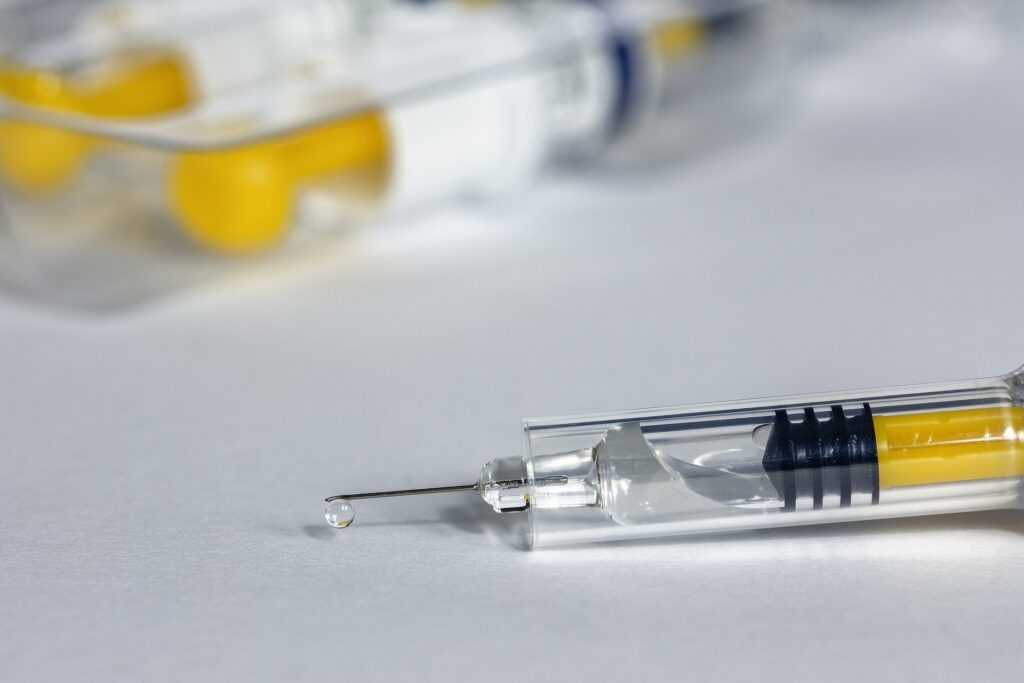Moderna announced today that its highly anticipated COVID-19 vaccine candidate appears to be 94.5 percent effective. This is according to preliminary trial data from the company’s ongoing study that involves 30,000 people in the US.
The news comes shortly after Pfizer and BioNTech’s mega announcement last week of their COVID-19 vaccine having shown 90 percent efficacy in an ongoing large-scale Phase III trial.
The demonstrated efficacies of both vaccine candidates are much higher than anticipated, with initial predictions having betted on the vaccines to only be half as effective. This would have barely met the US Food and Drug Administration (FDA)’s 50 per cent efficacy requirement for a COVID-19 vaccine to prevent the infection, and even include possible prevention of severe disease.
The early results from both Moderna and Pfizer place the companies in a strong position to submit applications for emergency use authorizations to the FDA in the coming weeks.
Moderna’s mRNA vaccine candidate — mRNA-1273 — was developed using its proprietary mRNA technology platform. The vaccine is given in two doses.
Moderna reported that the primary efficacy endpoint in the company’s Phase III COVE study evaluating mRNA-1273 had been met — the primary endpoint was based on analysis of confirmed and adjudicated COVID-19 cases beginning two weeks following the second dose of the vaccine.
The Phase III COVE trial is a randomized, placebo-controlled study testing mRNA-1273 in participants 18 years of age and older. The primary endpoint is the prevention of symptomatic COVID-19 disease. Key secondary endpoints include prevention of severe COVID-19 disease and prevention of infection by SARS-CoV-2.
The study is being conducted in collaboration with the Biomedical Advanced Research and Development Authority (BARDA) and the National Institute of Allergy and Infectious Diseases (NIAID), which is part of the National Institutes of Health (NIH). The study is being executed through NIAID’s COVID-19 Prevention Network (CoVPN) under the US federal government’s Operation Warp Speed program. Moderna’s partner PPD (Nasdaq: PPD), a leading global contract research organization, has also been integral to assisting on the COVE study.
An advantage of the Moderna vaccine is that once thawed, it can apparently be stored for up to 30 days at refrigerator temperatures between two to eight degrees Celsius; this finding actually comes from new data that shows a lengthened storage capacity compared to the seven-day period that the company had first reported. This compared to the vaccine from Pfizer and BioNTech, which can only be refrigerated for five days. The 30-day shelf life could increase the utility of the vaccine in mass vaccination campaigns as it could be kept in refrigerators at pharmacies, doctor’s offices, hospitals, community health centers and public health organizations, increasing access and efficiency.
First Interim Analysis
The first interim analysis was based on 95 participants, among which 90 cases of COVID-19 were observed in the placebo group versus five cases in the vaccine group, leading to a vaccine efficacy of 94.5 percent (p <0.0001).
A secondary endpoint of the trial involved analysis of severe COVID-19 cases, of which there were 11 in the first interim analysis. All of the severe cases occurred in the placebo group and none in the vaccinated group.
The COVE study includes medically high-risk groups including older individuals, racial minorities and people with chronic diseases such as diabetes, severe obesity and cardiac disease — these groups represented just over 40 percent of all participants in the trial. Of the 95 individuals in the first interim analysis, 15 were 65 years of age or older and 20 were from minority communities, including 12 Hispanic or LatinX, four Black or African Americans, three Asian Americans and one multiracial.
The interim analysis was conducted by an independent, NIH-appointed Data Safety Monitoring Board (DSMB), which also included a concurrent review of available study safety data. The review found that the vaccine was generally well tolerated, with most of the reported adverse events having had been mild or moderate and short-lived. More severe reactions were observed in low percentages of participants (two to ten percent) and included fatigue, pain, headache and injection site redness after the second dose of the vaccine.
“This is a pivotal moment in the development of our COVID-19 vaccine candidate. Since early January, we have chased this virus with the intent to protect as many people around the world as possible. All along, we have known that each day matters. This positive interim analysis from our Phase III study has given us the first clinical validation that our vaccine can prevent COVID-19 disease, including severe disease,” said Stéphane Bancel, chief executive officer of Moderna in a news release from the company.
Along with applying to US regulators, Moderna is aiming to have 20 million doses of its vaccine available in the US by next year, along with one billion additional doses for the rest of the world as it seeks approval in other countries as well.












Join or login to leave a comment
JOIN LOGIN